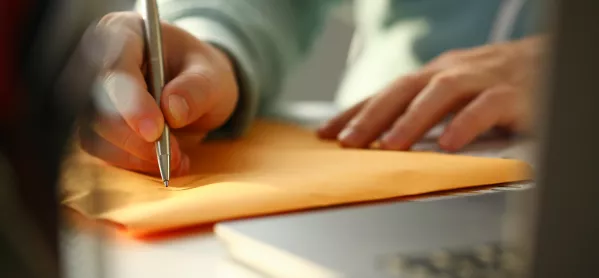School leader criticises ‘randomly generated’ IB grades
Share
School leader criticises ‘randomly generated’ IB grades
After students and teachers expressed their anger when some received lower grades than expected in this year’s International Baccalaureate results, one headteacher has now written to the Department for Education (DfE) calling for clarity over “what appears to be a set of randomly generated” grades.
Nearly 10,000 people have signed a petition calling for “justice” for IB students after many received results that were far below their predicted outcomes for the Diploma programme, with some receiving no qualification at all.
After it cancelled exams this year in March, the IB said it would calculate grades using a combination of internal assessments, teacher predictions and historic data. However, while the average score out of 45 rose this year, many students appear to have been left with grades that do not reflect their prior ability.
IB results: Anger grows over grading ‘scandal’
‘Scandal’: Students demand new grades
IB: Unhappy schools want more transparency
Results day 2020: Average score up to four-year high
IB worldwide: Asia-Pacific schools cement their lead
Opinion: ‘A results day based on predictions isn’t the same’
Watch: How results were achieved without exams
Now Mark Sully, the deputy headteacher at Warminster School in Wiltshire, has written to education secretary Gavin Williamson and shadow education secretary Kate Green about concerns over the grading process this year.
“Our pupils here at Warminster School, like all 174,000 worldwide were anxious and nervous ahead of receiving their results, as were we as staff,” he wrote.
“Nothing could have prepared us for the shock we had when seeing the results for the first time. As a school, we were appalled at what appears to be a set of randomly generated numbers in most cases, rather than the scores that had been expected and deserved by the pupils. This experience seems to have been similar worldwide with vast exposure on social media of this injustice.”
He said there was a lack of transparency from the IB regarding the grading process, and that the data for his school did not “make sense”.
He said three biology teachers at his school, two of whom had 14 years’ experience each teaching the IB, had been “superbly accurate” at marking internal assessments in previous years, with any moderated grades changing very little. This year, the IB collected in all student internal assessments, and the grades changed by up to 12 marks during moderation.
Would love an explanation to this @iborganization This is our Biology HL IA data since this course came in in 2016. Same staff (Two of whom have 14 years IB experience EACH), same internal moderation process, same standards and procedures. @tes @IBSCAtweets @HMC_Org @ISC_schools pic.twitter.com/Wbk5OmfAhU
- Mark Sully (@marksully9) July 8, 2020
“In previous years these three staff have been superbly accurate at marking the internal assessment, however for some reason this year the IB have decided that their marking is not good enough,” he wrote in the email.
“The work was conducted by the same teachers, under the same circumstances, using the same labs and equipment and moderated internally in the same manner. There are no logical reasons for this vast anomaly.”
He said he feared there were not enough markers this year, and that for the IB to take in all internal assessments would have meant a “huge increase” in marking, “hence the IB transferred staff who would normally mark written exam papers across to mark internal assessment instead, having never done so before”.
Mr Sully said this would have left markers without enough time to gain experience of marking internal assessments.
“The internal assessments were the only assessed work that the IB had to go off of and yet we cannot trust their marking at all. These poor moderations have had huge knock-on effects to the grades awarded to all pupils,” he wrote.
Mr Sully said that the pupil who had lost 12 marks in the internal assessment, dropping from a grade of 19 out of 24 to just 7, had previously achieved a grade 8 in biology at GCSE, and had now missed out on a place to study medicine.
Mr Sully called for the IB to allow schools to “provide previous public examination results for their pupils as evidence of their true ability under exam conditions” and to “not be too proud to say they may have got things wrong”.
“We are in danger of losing a generation of academics, be that doctors, politicians or teachers and if nothing else the pupils who have worked hard for the last two years deserve to gain grades that truly reflect their ability,” he said.




